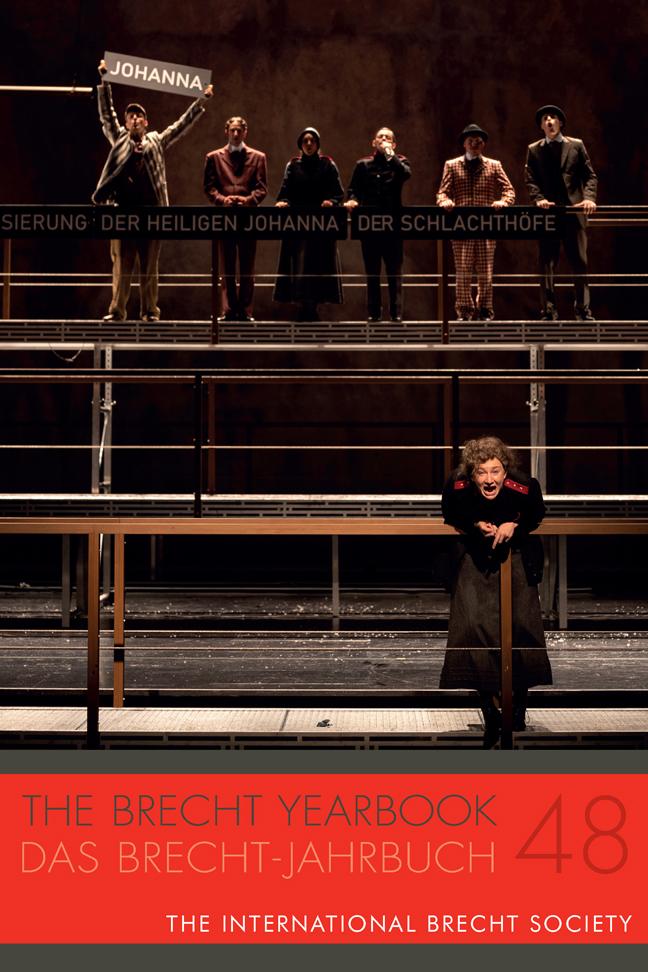The Lehrstück as a Digital Space for Dialectics: Robinson Crusoe on His Deserted Island (2021)
Published online by Cambridge University Press: 22 February 2024
Summary
Introduction: What Is There to Learn during a Pandemic?
The COVID-19 pandemic has deepened a number of social conflicts distinctive of the neoliberal age. These range from the prioritization of business interests over labor conditions to the state of public services like national healthcare systems, with each of these issues acquiring a different degree of prominence depending on regional contexts. The question of digital technologies and their impact on individual lives has been a central one as well. On the one hand, digital media have been the major channel for social interactions during lockdown, and they have converted public and artistic events, interpersonal interactions, and education to a digital format. The centrality assumed by social media in the transmission of news and information has also been part of this tendency. On the other hand, digital technologies have been a site of political contention. The major issues that have attracted public attention include the conversion of thousands of work activities to homeworking and the enhancement of control over workers by employers, the harvesting of data from social media users often conducted with poor transparency, and the use of social media to spread misinformation for political purposes, predominantly by conservative and far-right forces. It is under these circumstances that I started working on my doctoral dissertation, which revolves around the exploration of the Lehrstück (learning play) as a performance practice to explore political economy. This article recounts my attempt to employ the learning play within the digital realm in a moment of social turmoil and forced digital conversion.
According to Bertolt Brecht's original concept, a central element of the Lehrstück as a performance practice is its interactivity, which extends to the interaction with and through technology as exemplified by one of his earliest learning plays: Der Ozeanflug (The Flight across the Ocean; 1929–1930). The play was conceived for a different medium, namely radio, which Brecht considered playing a conservative function in society as it would encourage the passive and isolated reception of information. He therefore devised Der Ozeanflug, so that listeners would be able to speak a part of the text in response to its broadcast on the radio.
- Type
- Chapter
- Information
- The Brecht Yearbook / Das Brecht-Jahrbuch 48 , pp. 161 - 180Publisher: Boydell & BrewerPrint publication year: 2023

